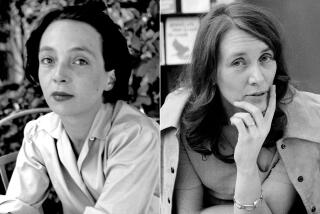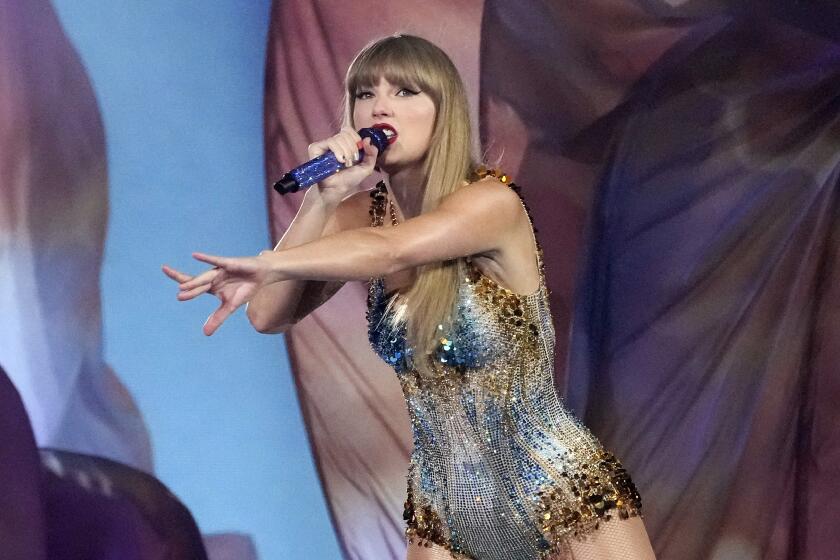When bite overwhelms insight
Oscar WILDE once observed that the term “genius” was becoming so overused, it was being applied to racehorses. By some standards, Anthony Burgess might be accounted a genius. By a higher standard -- the standard, say, of his idols James Joyce and D.H. Lawrence -- one would have to call him a genius-manque.
Or, one could settle on this verdict from “The Oxford Companion to Twentieth-Century Literature in English”: “... a prodigious intellect and polymath, with a cosmopolitan grasp of culture ...”
Then again, one might also conclude, from reading Roger Lewis’ biography of Burgess, that he was less a genius than a charlatan. Or, if not quite a charlatan, with all the deliberate subterfuge and trickery that implies, then certainly a less than first-rate writer: an artist of some talent who huffed and puffed with all his might to blow himself up to the level of genius, but who finally lacked the self-knowledge, the emotional honesty and the heart to animate his many creations with the breath of life.
Lewis first met Burgess in 1985, when the former was a student at Oxford and the latter the world-famous author of “A Clockwork Orange,” “Earthly Powers” and scores of other books. By his own account, the young Lewis seems to have been obsessed with Burgess, whose works he had eagerly devoured. In Burgess’ prolific output, his far-ranging interests, his erudition, his linguistic inventiveness, his eccentricity, his irascibility and his sheer, amazing energy, Lewis saw a kind of writing very different from what Burgess regularly denounced as the tame, suburban domesticity of contemporary British fiction.
Burgess was cosmopolitan, colorful; he embraced myth and extravagance; he embodied exuberance and creativity.
But over the years that followed, Lewis, like many an idolater, turned against the former object of his worship. The obsessive fascination remained, but now the aim was to expose the idol’s feet of clay. The result is a biography drenched in the corrosive acid of love-hate, of infatuation turned to disillusionment, which reads as a scathing attack on Burgess’ work and an indictment of his life and character.
In fact, it could be said that this book is less a biography of Burgess than a critical reading of his work. Considering how much more attention biographies are accorded than criticism these days, it’s not surprising that Lewis should have opted to package his book this way.
Then again, the book he has written is a very peculiar kind of literary criticism, to say the least: It’s also criticism in the unliterary sense of the word, an exercise in criticizing, castigating and denigrating its subject.
Weirder yet, in mounting this attack on his former idol, Lewis casts himself in Burgess’ mold, acting out the part of reckless, irascible, angry iconoclast with a frenetic energy that at times seems mildly demented. Discussing the novel “Beard’s Roman Women,” for example, he writes:
“As for Burgess’s contribution, the use of English is so ugly and contorted, it is like a bad translation. The dialogue is so convoluted, when had he last listened to people talk? ... Burgess’s books get to be about their own form, intellectual play, arcane diction, and he grew fond of big abstract themes like free will.... It was part of his super-human persona to deal with cosmic themes, as if he was a god, handing down punishment. He went in for overblown pastiche pseudo-classics about Shakespeare, Jesus, Marlowe, Moses, Freud.... But he didn’t bother to invent realistic, recognizable people. Burgess’s characters are on the same footing as rats and elephants -- animals dominating weaker animals, despotically or reasonably, according to the laws of the jungle.”
Lewis may have a point about what’s missing from Burgess’ fiction, but making this point over and over again for several hundred pages is a strange way to write a biography. Attributing the flaws in Burgess’ work to flaws in his character, Lewis sits in judgment on Burgess’ life with an arrogance and over-familiarity that are even more out of place here than in his evaluation of Burgess’ oeuvre.
It’s one thing to accuse Burgess, the writer, of failing to engage readers on an emotional level: As a reader, Lewis is entitled to his reactions. But it’s quite another matter for Lewis, the biographer, to launch a full-scale assault on Burgess’ account of his own life, especially when he has almost no evidence to substantiate his doubts.
With no good reason except perhaps his own animosity, Lewis expresses doubt that Burgess was the father of his second wife’s son. He also disputes Burgess’ version of having been misdiagnosed with a brain tumor in 1959 and is similarly skeptical about the story of how his first wife was assaulted by four G.I.s during World War II.
Not content with maligning Burgess, Lewis also takes potshots at a wide range of extraneous targets, from Stanley Kubrick to Paul Theroux. Fortunately, for readers in search of a more reliable biography, there’s one due out in Britain later this year by Andrew Biswell, an academic at the University of Aberdeen. At least one presumes it will be more reliable, as it would be a neat trick to produce one that would be less reliable than Lewis’.
More to Read
Sign up for our Book Club newsletter
Get the latest news, events and more from the Los Angeles Times Book Club, and help us get L.A. reading and talking.
You may occasionally receive promotional content from the Los Angeles Times.







